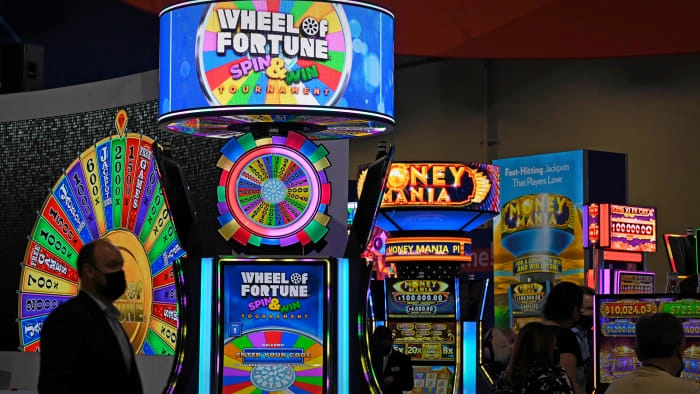By now, most gamblers know that President Donald Trumps One Big Beautiful Bill Act contains a poison pill they are being forced to swallow.
The tax bill only allows them to deduct 90% of their gambling losses, meaning gamblers could have to pay taxes on money they actually lost.
That makes the loss even worse and, in theory, ruins things like casino loyalty programs. Few gamblers are going to sign up to have their play tracked if it means that they might end up owing taxes on money they did not win.
Its hard to imagine an IRS that can actually keep track of how much money people have gambled. Doing so would mean bringing in forms and tracking play not just in the United States, but on cruise ships around the world.
Right now, gamblers are supposed to pay taxes on anything they win. In reality, nobody reports a win to the IRS if they do not have to.
=�=� Don't miss the move: Subscribe to TheStreet's free daily newsletter =�=�
Currently, you only have to report a win when you exceed certain thresholds. The most famous one of those is when you hit $1,200 or more playing slot machines.
When that happens, your machine freezes and somebody from the casino has to walk over and collect your personal information. They use this to fill out a tax form in order to report your winnings to the IRS.

Slot players get a little bit of relief under the new law.
Image source: David Becker/Getty Images
The hand-pay threshold has not gone up in decades
Slot players have had to get a tax form for a hand-pay at the $1,200 rate since 1977. The number has not increased by a single dollar, even though Congresspeople, generally representatives from states that have casinos, have tried to get the limits lifted.
That's not just a question of taxes. In theory, gamblers owe taxes on any winnings, since they count as income even when no form has reported them to the IRS.
On a practical basis, however, you have to imagine that few people are honest enough to pay taxes on wins the IRS knows nothing about.
More Las Vegas:
That's because casinos don't like having players who just won a small jackpot (or a large one) stop playing in order to wait for a tax form. Filling out those forms requires labor, and sometimes when you win, it can be a challenge to track down a casino worker.
This can take a happy moment and make it an angry one, as people are tied to their machine until someone shows up. If they have been drinking, that can lead to an uncomfortable situation, given that you can't really leave to go to the bathroom.
New tax bill raises the slot-machine threshold
Earlier this year, federal legislation to update the tax reporting threshold for slot-machine wins was reintroduced to Congress by United States Reps. Dina Titus (D-Nev.) and Guy Reschenthaler (R-Pa.). The bipartisan legislation would increase the IRS reporting requirements for casinos from $1,200 to $5,000 before a casino needs to issue a W2-G.
That legislation has been proposed multiple times and has never reached a vote. Helping gamblers does not seem to be a priority for Congress, as they refused to vote on a provision to reverse the tax on money that may have been lost that's part of the new tax bill.
The bill, technically known as the One Big Beautiful Bill Act (OBBBA), however, does have a gift for slot players.
"An element of the OBBBA that hasnt garnered nearly the same media coverage as it relates to the gaming industry is 'Section 70433 C Application to Reporting on Remuneration for Services.' The text increases the tax reporting threshold on gambling winnings to $2,000," Casino.org first reported.
That's a meaningful increase for slot players, as it will limit how often they must stop to wait for a hand-pay and tax form. It's a minor win, since $2,000 isn't the $5,000 sought to account for the nearly 50 years since the number was increased.
But as gamblers know, a win is a win.


